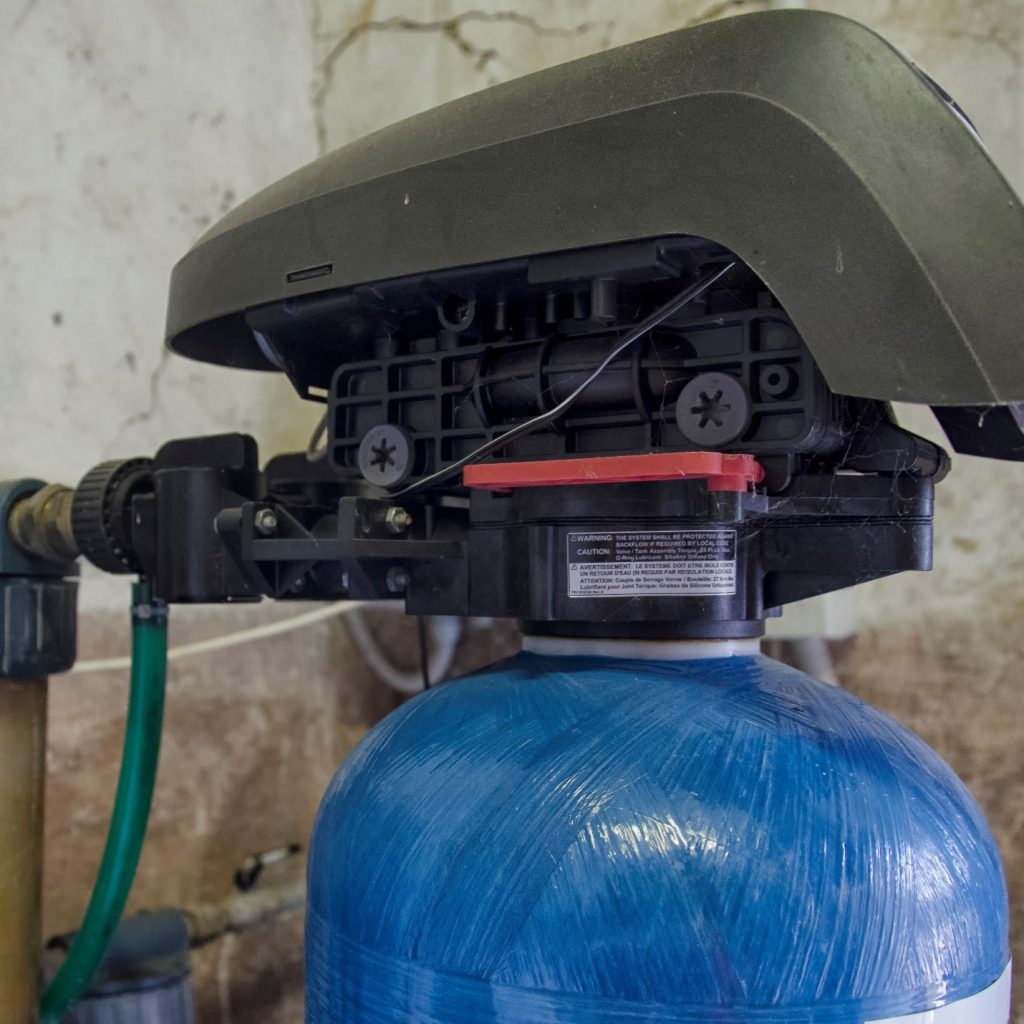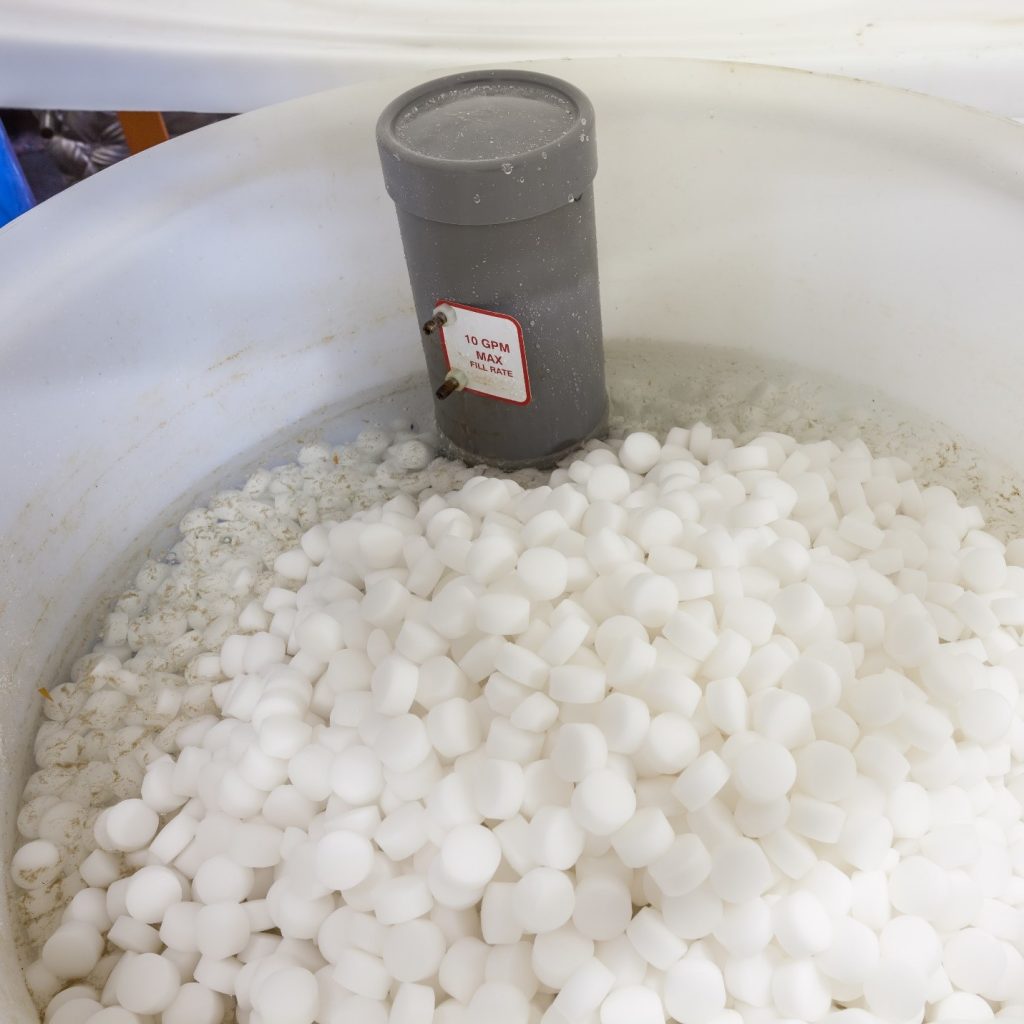
Increasing Water Quality
Water hardness is determined by the amount of dissolved magnesium and calcium inside. You may have noticed that after washing, your hands feel a bit slimy or your glasses are still a bit foggy. That’s a sign you’re dealing with hard water. When you have hard water, it can be a bit of an annoyance when you’re trying to keep the house clean, but it also can speed up the deterioration in your plumbing system. That’s why many homes use a water softener or filter to ensure they’re using and drinking clean, healthy water. Here, we discuss water softener for home use, its benefits, and compare it to some other solutions.
Is a Water Softener Worth It?
A water softener system cleans your home’s water before you use it for bathing, cooking, or cleaning. Generally, a water softener works through a system of regeneration. They each have a secondary storage tank that requires softener salt. Water is added to the salt to create what’s called brine. When water enters the primary tank, the brine is mixed into the hardened water and a process called ionization takes place. Ionization removes all of the hardened minerals and the clean, softened water is ready for use.
Modern homes depend on water softeners to provide clean water and extend the lifespan of their pipes and plumbing. Water softener with installation service is worth it if you’re tired of stiff towels, foggy glassware, or limp hair after a shower.
How Long Does a Water Softener Last for?
With the right plumbing installation and maintenance, you can expect your water softener to last anywhere from 10-15 years. Eventually, the appliance’s components will break down because of wear and tear. Sometimes you can do things to add years to your softener, but over time you’re going to notice a decline in performance.
What Happens If My Water Softener Runs Out of Salt?
This is a common question a lot of homeowners ask. When you run out of salt, your water softener can’t make a brine. That means when hard water enters the primary tank, no ionization is occurring. What you get is hard water in and hard water out. Some people ask, “What happens if I stop putting salt in a water softener?” Well, exactly the same thing. You’re going to experience higher levels of calcium and magnesium in your plumbing. The nice thing is that it’s fairly easy to spot when hard water levels spike. If you start to notice your dishes are still a bit grimy after running through the dishwasher, then it’s probably an issue with salt levels in your softener.
Do Water Softeners Need Servicing?
The basic function of a water softener is easy enough for most homeowners to handle after installation. Most of the time, as long as you add salt and keep it as clean as possible, you won’t need regular servicing. However, problems can occur if something happens to one of the components. If something needs to be replaced, it’s a good idea to get professional help to make sure things go smoothly and your system stays in good shape.
If you’re ever concerned about performance, then many plumbing services will provide water softener servicing to check on your system. It doesn’t take too much time and can give you peace of mind knowing you’re getting soft water that’s clean and protects your pipe system.

Water Softener vs Reverse Osmosis
There’s a lot of debate out there on whether a water softener or using reverse osmosis is the better option. You’re dealing with the question of choosing between a water softener or filter for your home plumbing.
- Reverse Osmosis – With reverse osmosis, you filter the water. This gets done with an actual filter that removes minerals from your home water. Some people prefer reverse osmosis filtering because they think the water tastes better, it removes odors, and it requires no chemicals to deliver clean water to all of you sinks, faucets, and showers. The main difference from softeners is that reverse osmosis also filters for other chemicals like lead, fluoride, salt, nitrates, and sulfates.
- Water Softeners – Water softeners work to remove calcium, magnesium, and other hard minerals from the water.
A lot of homeowners opt to both install a water softener and a reverse osmosis filtration system to get the best of both worlds. With both systems involved, you can soften your water to preserve your plumbing system and get clean, great-tasting water free from several chemicals. It’s something to consider if you’ve got the budget. Many people end up saving hundreds of dollars each year because a comprehensive water treatment system means they don’t have to buy bottled water to drink. It can end up being positive in the long run.
If you’re tired of dealing with hard water or are concerned that your water may have harmful minerals inside, then talk to a professional plumbing team about what can be done. They’ll present different options you can use to solve your water problems and get the clean water you deserve. Call our experts at 828-778-2425 today for your water softener in Hendersonville, Mills River and Asheville, NC.





